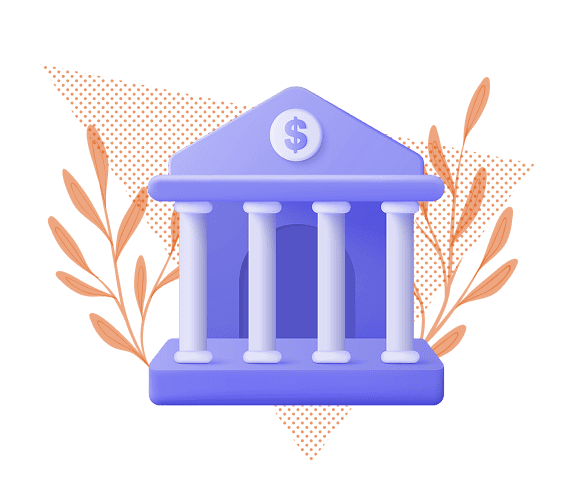Online Banking: Definition, Pros & Cons, and What It Means For You
Updated: 24 Jul 2025
Written bySingSaver Team
Team
The information on this page is for educational and informational purposes only and should not be considered financial or investment advice. While we review and compare financial products to help you find the best options, we do not provide personalised recommendations or investment advisory services. Always do your own research or consult a licensed financial professional before making any financial decisions.
Online banking refers to accessing banking services over the internet through websites or mobile apps without needing to visit a physical branch.
It covers a wide range of services such as transferring funds using FAST or PayNow, checking account balances, paying bills through GIRO or eBill, and applying for credit cards, loans, and even insurance products. According to DBS Digibank, online banking includes both simple transactions like viewing balances and more complex services like foreign currency transfers.
Access is typically available via desktop computers, tablets, or smartphones, offering Singaporeans flexibility to manage their finances anytime, anywhere.
Find your ideal loan in Singapore 2025
Need quick cash? Find and apply for online personal loans with fast approval, competitive rates, and flexible repayment options.
Pros of online banks
With convenience and cost savings at the forefront, online banking is increasingly popular among Singaporeans.
Lower fees
One of the biggest draws of online banks is their lower fees. Digital banks like Trust Bank and GXS, and even traditional banks' online platforms, often waive fees such as minimum balance charges.
Without the overheads of running physical branches, online banks can pass on the savings to consumers — leading to cheaper, more attractive services.
» Compare overdraft fees at our local banks
Better interest rates
Online-only banks and digital savings accounts frequently offer better interest rates compared to traditional banks. For instance, Trust Bank and GXS provide competitive savings rates, while traditional banks like Standard Chartered’s Bonus$aver account reward customers who fulfil online banking tasks like crediting salaries and paying bills digitally.
» See the full breakdown in our digital banking showdown
Because online banks save on operating costs, they can reinvest these savings to offer higher returns to customers.
» You can also supercharge your savings with a fixed deposit
Cons of online banks
While online banking is convenient, it is not without drawbacks — especially for customers who prefer in-person service or have more complex banking needs.
No physical branches
For customers who value face-to-face assistance, particularly for complex transactions like mortgage advisory or investment planning, the absence of physical branches can be a downside.
Additionally, services such as document notarisation or large cash transactions still require a physical branch visit.
» Keep up-to-date with public holidays in 2025
Cash is harder to deposit
In Singapore, cash deposits still mainly happen at ATMs or branch counters. Digital-only banks like Trust Bank and GXS do not offer cash deposit facilities.
As a workaround, customers often deposit cash into a traditional bank first, then transfer the funds electronically to their online account.
» Explore everything deposit-related with our overview
Fewer one-stop-hub options
Traditional banks like DBS and OCBC offer a full suite of services — investments, insurance, wealth management, and more.
Online banks tend to focus on core banking services, offering limited options for bundled financial products. While some online banks do provide additional services such as investments, they typically do not offer the comprehensive range that traditional banks do.
» And if you decide to do so, learn how to switch banks
Best savings accounts 2025
Find a low-fee, high-interest, hassle-free savings account that suits your needs here
Online banks' standard services
Online banking platforms in Singapore are highly developed, offering services such as:
-
FAST transfers, PayNow, PayLah!, and PayAnyone transactions
-
Opening fixed deposits digitally
-
Access to integrated investment platforms like OCBC Digital Investing
-
Applications for credit cards, personal loans, and travel insurance
-
Updating personal details like home address directly through banking apps
Thanks to this extensive range, most banking needs in Singapore can be met online with minimal hassle.
Frequently asked questions about online banking
-
Retail internet banking for personal finance management
-
Corporate internet banking for business accounts
-
Mobile banking through dedicated apps for smartphones
-
Neobanking, which refers to fully digital banks that operate without any branches
Online banking means using the internet to access your bank account and perform financial transactions without visiting a branch.
To get started, download your bank’s app, register using MyInfo (linked to your SingPass), set up two-factor authentication (2FA), and begin exploring the available services on the app or website.
There are several types of online banking:
Yes, you can. In Singapore, many banks allow you to open accounts fully online using MyInfo, which speeds up the process by automatically filling in your information and verifying your identity instantly.
Neobanks are financial institutions that operate entirely online without any physical branches.
In Singapore, examples include Trust Bank (backed by NTUC and Standard Chartered), GXS Bank (a Grab and Singtel joint venture), and SeaBank (part of Sea Group, the parent company of Shopee).
Neobanks offer simple products, attractive deposit rates, and lower fees. However, they also have limitations, such as not providing cash deposit services and offering a narrower range of financial products compared to traditional banks.
If you are comfortable managing your finances digitally, appreciate 24/7 access, and want to enjoy lower fees and better rates, online banking could be a great fit.
However, if you prefer personalised advice, need services like large cash deposits, or require notarised documents, you may still want to maintain a traditional bank account alongside your online banking services for greater flexibility.
Relevant articles
About the author
SingSaver Team
At SingSaver, we make personal finance accessible with easy to understand personal finance reads, tools and money hacks that simplify all of life’s financial decisions for you.
